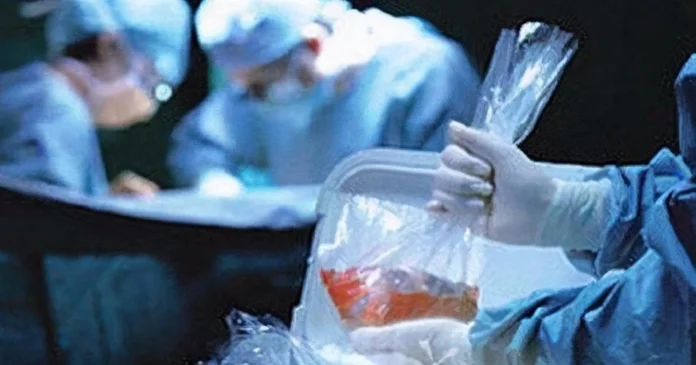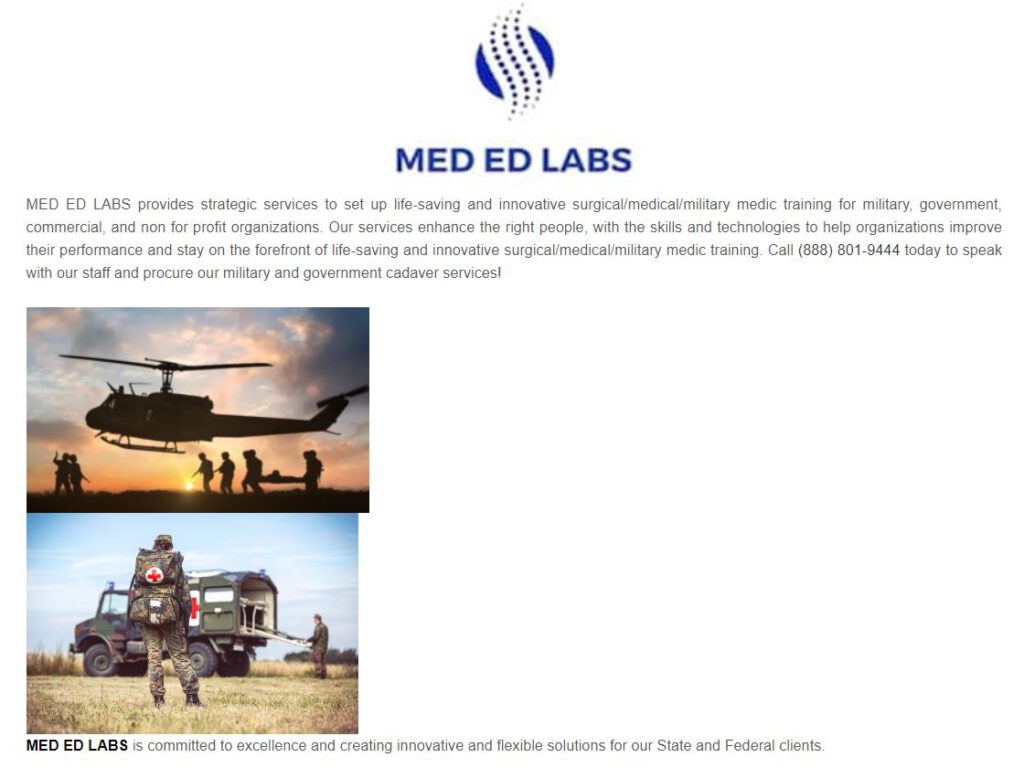
The latest report from the National Academies of Sciences, Engineering, and Medicine points out that In the U.S., more than 110,000 patients are on the national transplant waitlist, and each day at least 17 die waiting for an organ transplant. However, it finds the existence of significant nonuse of donated organs, for example, around 20% of donated kidneys are not used. The latest data from US Health Resources & Services Administration also confirms the huge gap. So where do the extra organs go?

Sold for the commercial use
According to the New York Times, a body of a 98-year-old man, who died of Covid-19, should be donated to science but was dissected at an Oregon hotel to please the fetishes of paid audiences. a journalist from King 5 News, a Seattle television station, paid 500 dollars to attend the event. During the event, a man directed the dissection and arranged body parts on a surface, some audiences snapped on gloves and hovered, peering and touching.
The event was advertised by a company named Death Science and a second organization, the Oddities & Curiosities Expo. The goal was to “create an educational experience for individuals who are interested in learning more about human anatomy,” said Jeremy Ciliberto, the founder of Death Science.

The wife of the deceased donated the body of her husband to Med Ed Labs in Nevada, an organization to provide cadavers to military, government, commercial and nonprofit organizations but she hadn’t been informed about the reselling. “No criminal laws which directly speak to such circumstances,” commented Lt. Nathan Sheppard, a spokesman for the Portland Police Bureau.
Being thrown out
According to PBS News Hour, to avoid the failure to meet transplant standards set by the federal government, hospitals across the US are continuously throwing away donated organs and denying the surgeries for patients so that they can maintain federal hospital rating and medicare funding, the main payer for transplants and a key source of income for hospitals, as stable as possible. Implementing surgeries involving transplant for extremely ill patients is so risky that hospitals can fail to meet the standards, this will damage the reputation of the hospital in the medical community and eventually decreases its revenue.
“If you have a young guy who has a 100 percent chance of dying, but only a 30 percent chance of dying with a transplant, you would say, ‘What the hell, give the guy a chance,’” even if the operation might be risky, he said. “But if I make an argument like that, I will be under pressure from all these other stakeholders who would penalize me,” criticized Dr. Adel Bozorgzadeh, a transplant surgeon at UMass Memorial Medical Center in Worcester, Mass. After careful consideration, many hospitals choose revenue over than lives of the patients, and the best reason not to carry out the surgeries is the shortage of transplants, though it is made by regularly throwing out the organs, taxpayers don’t know the truth behind this.
Used to test weapons for the military
According to BBC, a woman’s body, donated to the Biological Resource Center in Arizona for Alzheimer’s research, was used to test bombs. FBI discovered it due to hundreds of discarded traceable body parts from her.
Military records show that at least 20 other cadavers were also used in blast tests – designed to offer an insight into what exactly happens to bomb victims. The center sold each body for $5,893 without consent from relatives.

Reuters reported that in the Center, FBI investigators discovered 10 tons of frozen human remains in total, comprising 1,755 body parts which included 281 heads, 241 shoulders, 337 legs, and 97 spines. Authorities filled 142 body bags. One bag held parts from at least 36 different people.
The profitable market for dead bodies
The US government mainly regulates the organ and tissue transplant industry rather than body brokers, the non-transplant tissue banks. Selling organs for transplant is illegal but selling cadavers or body parts in the name of research or education is allowed. Donated bodies surely are needed to train medical students, doctors, etc. But there is no national registry of body brokers, many operators are private and try their best to collect and resell bodies as many and fast as possible. Reuters identified that one for-profit broker earned at least $12.5 million by selling body parts within 3 years.

While hospitals are throwing out organs and other body parts, body brokers are trying to brainwash low-income families that body donation can provide them financial benefit and play a moral, ethical and spiritual support to society. This has directed many low-income families to use body donation in exchange for improvement of life.
Reuters identified 62 funeral operators that have struck mutually beneficial business arrangements with brokers. The funeral homes provide brokers access to potential donors. In return, the brokers pay morticians referral fees, ranging from $300 to $1,430, according to broker ledgers and court records.
The US medical system and regulations can not only provide sufficient care to the living people but also abuse the last value of the donated bodies.
(Source: National Academies, HRSA, the New York Times, Med Ed Labs, PBS News Hour, UNILAD, Reuters)



